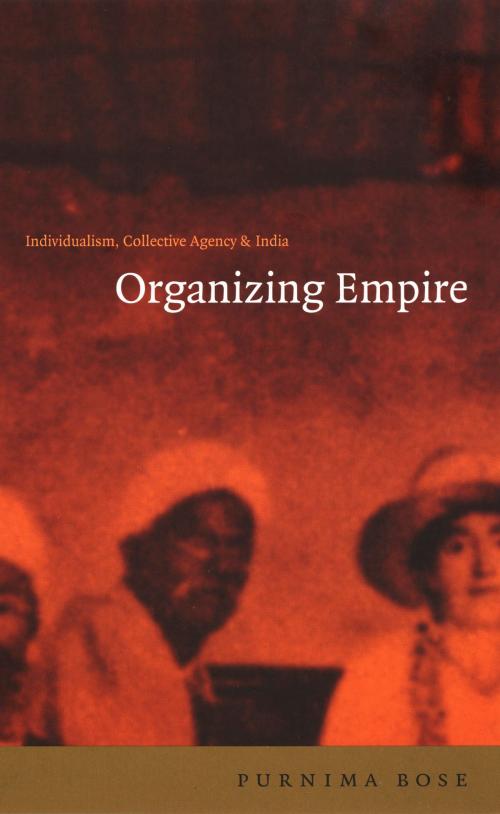Organizing Empire
Individualism, Collective Agency, and India
Nonfiction, History, Asian, India, World History, British| Author: | Purnima Bose | ISBN: | 9780822384885 |
| Publisher: | Duke University Press | Publication: | September 8, 2003 |
| Imprint: | Duke University Press Books | Language: | English |
| Author: | Purnima Bose |
| ISBN: | 9780822384885 |
| Publisher: | Duke University Press |
| Publication: | September 8, 2003 |
| Imprint: | Duke University Press Books |
| Language: | English |
Organizing Empire critically examines how concepts of individualism functioned to support and resist British imperialism in India. Through readings of British colonial and Indian nationalist narratives that emerged in parliamentary debates, popular colonial histories, newsletters, memoirs, biographies, and novels, Purnima Bose investigates the ramifications of reducing collective activism to individual intentions. Paying particular attention to the construction of gender, she shows that ideas of individualism rhetorically and theoretically bind colonials, feminists, nationalists, and neocolonials to one another. She demonstrates how reliance on ideas of the individual—as scapegoat or hero—enabled colonial and neocolonial powers to deny the violence that they perpetrated. At the same time, she shows how analyses of the role of the individual provide a window into the dynamics and limitations of state formations and feminist and nationalist resistance movements.
From a historically grounded, feminist perspective, Bose offers four case studies, each of which illuminates a distinct individualizing rhetorical strategy. She looks at the parliamentary debates on the Amritsar Massacre of 1919, in which several hundred unarmed Indian protesters were killed; Margaret Cousins’s firsthand account of feminist organizing in Ireland and India; Kalpana Dutt’s memoir of the Bengali terrorist movement of the 1930s, which was modeled in part on Irish anticolonial activity; and the popular histories generated by ex-colonial officials and their wives. Bringing to the fore the constraints that colonial domination placed upon agency and activism, Organizing Empire highlights the complexity of the multiple narratives that constitute British colonial history.
Organizing Empire critically examines how concepts of individualism functioned to support and resist British imperialism in India. Through readings of British colonial and Indian nationalist narratives that emerged in parliamentary debates, popular colonial histories, newsletters, memoirs, biographies, and novels, Purnima Bose investigates the ramifications of reducing collective activism to individual intentions. Paying particular attention to the construction of gender, she shows that ideas of individualism rhetorically and theoretically bind colonials, feminists, nationalists, and neocolonials to one another. She demonstrates how reliance on ideas of the individual—as scapegoat or hero—enabled colonial and neocolonial powers to deny the violence that they perpetrated. At the same time, she shows how analyses of the role of the individual provide a window into the dynamics and limitations of state formations and feminist and nationalist resistance movements.
From a historically grounded, feminist perspective, Bose offers four case studies, each of which illuminates a distinct individualizing rhetorical strategy. She looks at the parliamentary debates on the Amritsar Massacre of 1919, in which several hundred unarmed Indian protesters were killed; Margaret Cousins’s firsthand account of feminist organizing in Ireland and India; Kalpana Dutt’s memoir of the Bengali terrorist movement of the 1930s, which was modeled in part on Irish anticolonial activity; and the popular histories generated by ex-colonial officials and their wives. Bringing to the fore the constraints that colonial domination placed upon agency and activism, Organizing Empire highlights the complexity of the multiple narratives that constitute British colonial history.















